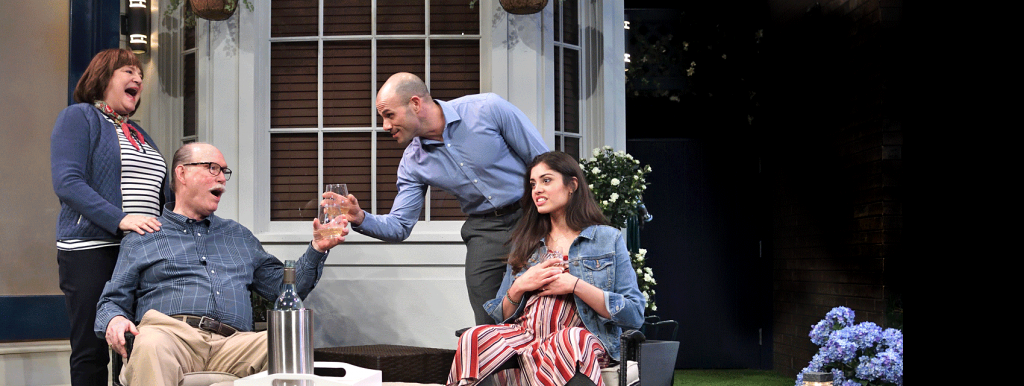Director Tatyana-Marie Carlo based this staging of Sueño on a telenovela set. But what exactly is a telenovela — and why set a Spanish Golden Age adventure tale on the set of one?
At their most basic definition, telenovelas are a style of serialized dramas produced in Latin American countries. Telenovelas can span a range of genres from romantic comedies to historical dramas to thrilling mysteries, but what they all tend to have in common are melodramatic storylines and multiple plots that may or may not intertwine. While the theatricality and exaggerated situations of telenovelas often lead to comparisons to English-language soap operas, telenovelas tend to have short runs of only a few seasons, compared to the decades-long legacies of American soaps like General Hospital or Days of Our Lives. Telenovelas also air during primetime instead of daytime, and tend to target a broader demographic than soap operas.
Some popular telenovelas have been adapted for English-speaking audiences too: the ABC sitcom Ugly Betty is based on the Colombian telenovela Yo soy Betty, la fea, and the CW’s Jane the Virgin is an adaptation of Venezuela’s Juana la Virgen. And with a rise in streaming and easier access to subtitles, it’s easier than ever to watch telenovelas in their original language.
Like telenovelas, Sueño has melodrama in spades. Plot points like Rosaura’s search for her long-lost father; Segismundo reuniting with his family after being locked away for decades; the love square
between Segismundo, Rosaura, Estrella, and Astolfo; and the dramatic climax of the play are all things that wouldn’t be surprising to find in a telenovela.
One telenovela Tatyana cites as a major inspiration for her direction of Sueño is Telemundo’s El
Zorro, la espada y la rosa (Zorro, the Sword and the Rose). Based on the classic fictional character Zorro,
a swashbuckling masked vigilante, this telenovela specifically inspired Sueño’s action and period-setting. Another one of Tatyana’s favorites is Luz Clarita, a Mexican telenovela about an orphan adopted by a wealthy family who still searches for her believed-to-be-deceased mother, impacting the lives and drama of those around her. She’s also a fan of Mexican singer and actress Thalia, who most famously starred in María la del barrio, known as Humble Maria in English. One of the most popular telenovelas of all time, María la del barrio also followed a girl who goes from rags to riches, but focused more on the romance between her and a wealthy man, with a woman also in love with him attempting to drive a wedge between the two. Despite the melodrama within telenovelas, it’s the human connections fostered that make the medium so relevant — and Tatyana hopes this translates to Sueño on the stage.
